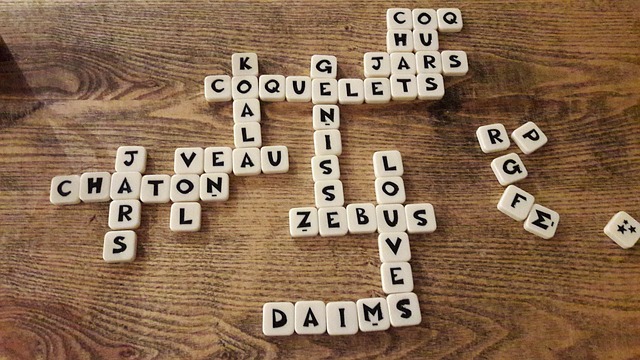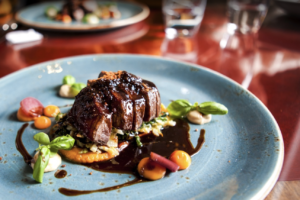Learn Basic French Words and Phrases
French is an awesome language. If you’re traveling to France, you’ll know first hand. But, the French are really proud of their language. Before you travel, you should definitely learn the most basic French words and phrases to get by. You’ll navigate easier and receive better customer service if you speak a little bit of French. Luckily, it doesn’t take long to learn at all. Use this handy vocabulary list to learn the most common French words in less than 30 minutes, and start your journey to fluency.
Common French Words
Let’s dive right in with some of the most common French words and phrases.
- Bonjour: a general greeting meaning “hello” or “good morning”
- Au revoir: goodbye
- Oui: yes
- Non: no
- Merci: thank you
- Merci beaucoup: thank you very much
- Fille: girl
- Garçon: boy
- Femme: woman
- Homme: man
- Amour: love
- Français: French
- S’il vous plaît: please (literally, “if you please”)
- Bonsoir: good evening
- Bonne nuit: good night
- Excusez-moi: excuse me
- De rien: a casual way of saying “you’re welcome”
- Je vous en prie: a formal way to say “you’re welcome”
- Temps: time
- Jour: day
- Monde: world
- Monsieur: mister or gentleman
- Raison: reason
- Mademoiselle: Miss, referring to an unmarried woman
- Madame: a married or older woman
- Beau: handsome
- Belle: beautiful
- Chat: cat
- Chien: dog
- Fort: strong

Common French Phrases
Now that we’ve looked at some common French words, let’s learn some frequent phrases. These will be helpful to know as you start forming full sentences, particularly if you plan to travel and talk with native French speakers.
- Je suis désolé(e): I’m sorry
- Comment vous appelez-vous?: What is your name?
- Parlez-vous anglais?: Do you speak English?
- Je m’appelle: My name is
- Comment allez-vous?: How are you doing?
- Quelle heure est-il?: What time is it?
- Pouvez-vous m’aider?: Can you help me?
- Combien ça coûte?: How much is this?
- Je t’aime: I love you
- À tout à l’heure!: See you later!
Useful French Phrases for Travelers
We’ve looked at some common everyday words and phrases. Here are some specific phrases that might be useful if you need to get information in French-speaking areas.
- Je ne comprends pas: I do not understand
- Parlez lentement, s’il vous plaît: Speak slowly, please
- Répétez, s’il vous plaît: Repeat, please
- Où sont les toilettes?: Where are the toilets?
- Où est un bon restaurant/un bon café?: Where is a good restaurant/cafe?
- Je cherche le métro/le gare/l’aéroport: I am searching for the metro/train station/airport
- Où est la plage/le centre-ville?: Where is the beach/city center?
- Je cherche l’hôtel/l’hôpital/la banque: I am searching for the hotel/hospital/bank
- Pourriez-vous me/nous prendre en photo?: Are you able to take my photo/our photo?

French Grammar: The Basics
Grammar is the boogeyman of language learning. Nobody likes it. But, it’s important to be familiar with the most basic rules, so you can start forming sentences in French quickly. With the useful French vocabulary you now have, you’re only steps away from fluency.
- Nouns Have Genders: In French, nouns are either feminine or masculine. These French genders affect a lot of grammatical rules. You need to conjugate adjectives and articles in French to fit the gender and number of the noun. For “the”, the French have “le” (masculine), “la” (feminine), and “les” (plural). For the English “a” and “an”, the French use “un” (masculine) and “une” (feminine).
- Verbs Conjugate Differently: In English, verbs in the present tense have only two forms. For example talk and talks. Meanwhile, in French, you have to conjugate verbs up to six different ways to fit the pronoun.
- Adjectives come after the noun: In English, the adjective is placed before the noun. But, in French, the adjective is often found after the noun. Note that this is true often, but not always. Adjectives describing beauty, age, number, goodness, and size (or BANGS) come before the noun as an exception.
Tips For Learning Common French Words
Before you begin learning the most common French words, it’s good to know how you can study the best. Use this advice to guide your experience and maximize your language learning success.
- Use your trip as motivation: Motivation and enthusiasm are crucial to language learning success. And an upcoming trip is the perfect opportunity to motivate you. Build your excitement and your fluency at the same time.
- Review often: Once you’ve read these common French words and phrases and understood their meaning, make sure you review your material multiple times before you travel. This method is called spaced repetition, and it’s the best way to remember your language lessons.
- Don’t be afraid to speak: Speaking is the only way you’ll become fluent in French. Feel free to say these common French words out lout to get comfortable with the language. By the time you arrive to France, you’ll have no problem talking with the locals.
- Learn about French culture: French culture is incredibly rich in cultures and traditions. Learn a little bit about them before your trip, so you don’t commit faux pas.
Learn More Useful French Words and Phrases
Knowing these common French phrases will be extremely handy when you go to France. But, of course, there’s a lot more to the language. Perhaps this list was just the beginning of your language learning journey. If you want to learn the most useful phrases in the French language, you should try OptiLingo.
OptiLingo gives you the most high-frequency words and phrases in French. Forget about learning unnecessary vocabulary. This fun and effective method will make French more accessible than ever. Speak like a local with minimal study time. Discover how great learning French is by trying OptiLingo today!







